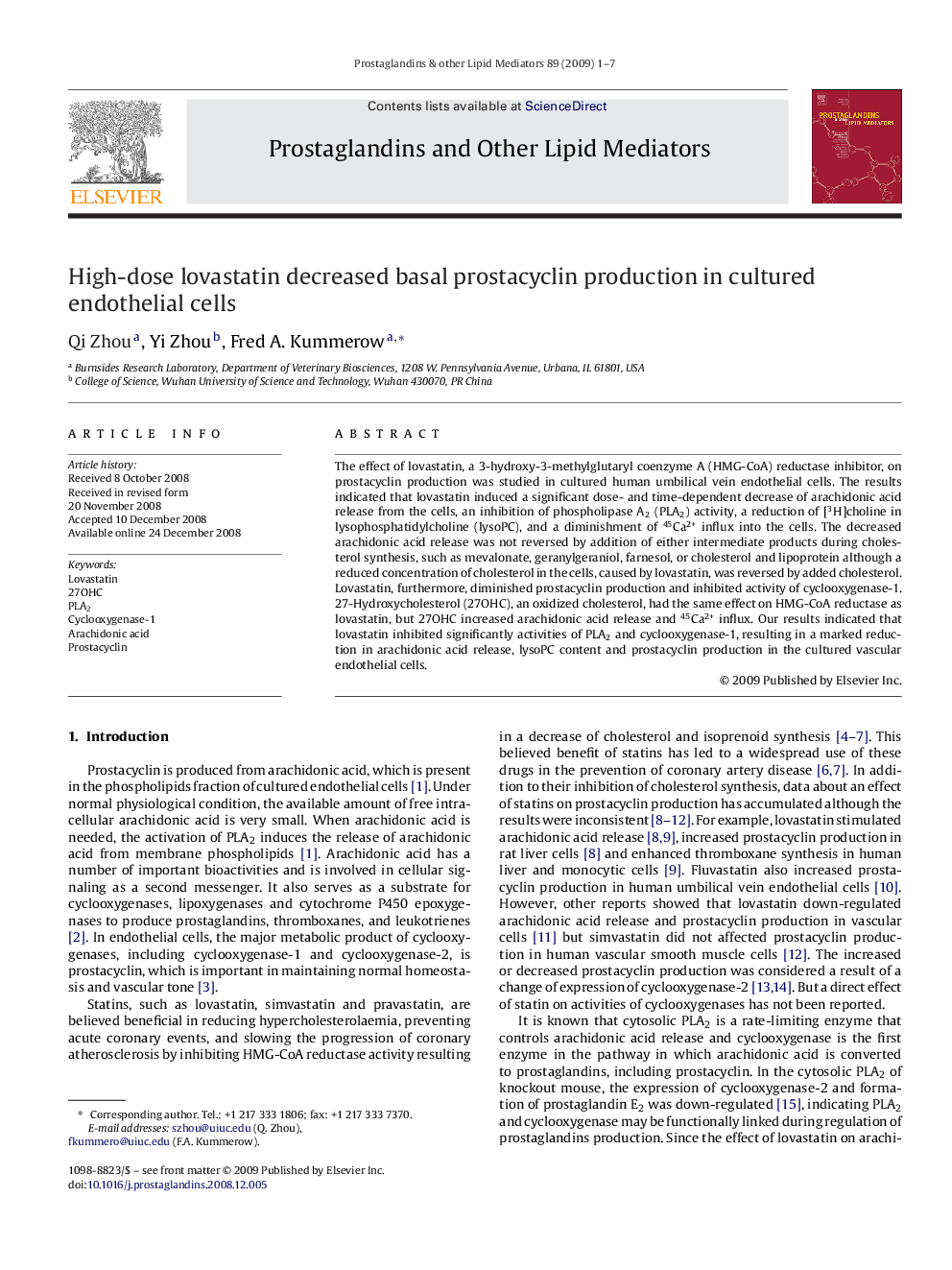| Article ID | Journal | Published Year | Pages | File Type |
|---|---|---|---|---|
| 2019867 | Prostaglandins & Other Lipid Mediators | 2009 | 7 Pages |
Abstract
The effect of lovastatin, a 3-hydroxy-3-methylglutaryl coenzyme A (HMG-CoA) reductase inhibitor, on prostacyclin production was studied in cultured human umbilical vein endothelial cells. The results indicated that lovastatin induced a significant dose- and time-dependent decrease of arachidonic acid release from the cells, an inhibition of phospholipase A2 (PLA2) activity, a reduction of [3H]choline in lysophosphatidylcholine (lysoPC), and a diminishment of 45Ca2+ influx into the cells. The decreased arachidonic acid release was not reversed by addition of either intermediate products during cholesterol synthesis, such as mevalonate, geranylgeraniol, farnesol, or cholesterol and lipoprotein although a reduced concentration of cholesterol in the cells, caused by lovastatin, was reversed by added cholesterol. Lovastatin, furthermore, diminished prostacyclin production and inhibited activity of cyclooxygenase-1. 27-Hydroxycholesterol (27OHC), an oxidized cholesterol, had the same effect on HMG-CoA reductase as lovastatin, but 27OHC increased arachidonic acid release and 45Ca2+ influx. Our results indicated that lovastatin inhibited significantly activities of PLA2 and cyclooxygenase-1, resulting in a marked reduction in arachidonic acid release, lysoPC content and prostacyclin production in the cultured vascular endothelial cells.
Related Topics
Life Sciences
Biochemistry, Genetics and Molecular Biology
Biochemistry
Authors
Qi Zhou, Yi Zhou, Fred A. Kummerow,
